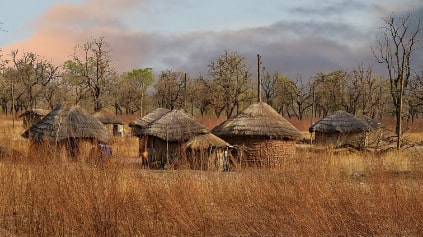According to 200 organizations, the billion-dollar Alliance for a Green Revolution (AGRA) program has been hurting Africans instead of helping them. What happens next seems to be up to high-profile donors and supporters.
The billion-dollar Alliance for a Green Revolution has “unequivocally failed in its mission” and “harmed broader efforts to support African farmers,” said 200 groups in a letter to the Bill & Melinda Gates Foundation, the U.S. Agency for International Development and other donors.
The Defender is experiencing censorship on many social channels. Be sure to stay in touch with the news that matters by subscribing to our top news of the day. It’s free.
Billions of dollars in aid and subsidies for industrial agriculture in Africa are harming food security in one of the world’s hungriest regions, according to a network of African groups asking donors to switch their funding to African-led efforts and agroecology.
In a letter delivered Tuesday, 200 organizations led by the Alliance for Food Sovereignty in Africa asked the Bill & Melinda Gates Foundation, the U.S. Agency for International Development and other donors to stop financing the Alliance for a Green Revolution in Africa (AGRA). The billion-dollar effort has “unequivocally failed in its mission” and “harmed broader efforts to support African farmers,” the groups said.
The groups delivered their letter as donors gathered for the African Green Revolution Forum this week in Nairobi, Kenya. The annual fundraising event established by Yara International fertilizer company says it is “designed to energize the political will” for policies and investments in sustainable agricultural transformation. The Forum, funded by chemical companies, private donors and other partners, said it will “elevate the single coordinated African voice” to the United Nations Food Systems Summit later this month.
That claim rankled African groups and many others who have been calling on UN leaders for two years to champion human rights, food sovereignty and ecology at the 2021 Food Summit, and say their concerns have been ignored.
“No, no, no. We are here to state clearly and categorically that the Alliance for a Green Revolution in Africa does not speak for Africans,” said Anne Maina, director of the Biodiversity and Biosafety Association of Kenya. Her group and hundreds of others are boycotting the UN Summit because, they say, it has been captured by corporations and donors who are pushing technological solutions for hunger while ignoring systemic changes necessary to address hunger and poverty.
That AGRA’s president, Agnes Kalibata, is leading the UN food summit is a conflict of interest, critics said, because AGRA is also fundraising for its own programs.
Analysis of Bill & Melinda Gates Foundation’s food + ag grants found majority of foundation’s funding goes to groups heavily skewed to technologies—completely ignoring knowledge, technologies + biodiversity Africa’s farmers already possess.https://t.co/t1aBO5Pkkw
— Robert F. Kennedy Jr (@RobertKennedyJr) June 21, 2021
Failing ‘green revolution’?
Hunger has worsened considerably since the Gates and Rockefeller foundations led a high-profile effort to bring the “green revolution” to Africa in 2006. AGRA’s main focus is transitioning farmers away from traditional seeds and crops to commercial seeds, synthetic fertilizer and other inputs to grow commodity crops for the global market. Bill Gates predicted that increasing inputs would boost agricultural productivity, alleviate hunger and lift small-scale farmers out of poverty.
AGRA has raised more than $1 billion, mostly from the Gates Foundation, on promises it would double yields and incomes for 30 million African farmers and cut food insecurity in half by 2020. Instead, the number of severely undernourished people in sub-Saharan Africa has increased by nearly 50 percent since 2006, according to the latest UN hunger report. The report paints an alarming picture of the ongoing food crisis in Africa worsened by the pandemic.
In their letter to donors, AGRA critics said a decade of research has exposed the failures of the green revolution model. AGRA uses its leverage to encourage African governments to focus on boosting agricultural yields rather than more systemic solutions, they said, noting that African governments in AGRA target countries spend about $1 billion a year on input subsidies.
Academic research suggests AGRA and the larger green revolution effort has had little if any positive impact on Africa’s small-scale farmers. Reports published in 2020 by the Tufts Global Development and Environment Institute and African and German groups found slow productivity growth for staple crops and no evidence of rising incomes for small-scale farmers. The evidence also suggests that farmers are abandoning more nutritious, climate-resilient crops, such as millet, to grow maize.
READ full article: 200 Organizations Ask Gates Foundation to Stop Funding “Failed” Green Revolution which “does not speak for Africans”
